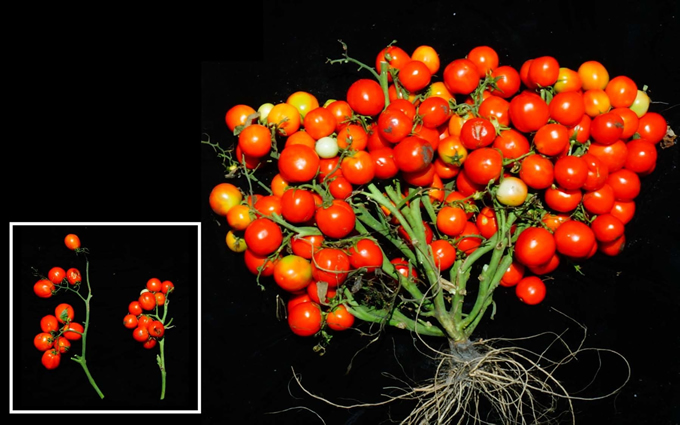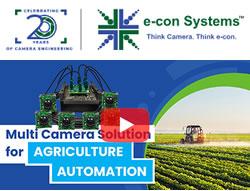A new tomato ideal for urban gardens and even outer space

Farmers could soon be growing tomatoes bunched like grapes in a storage unit, on the roof of a skyscraper, or even in space. That's if a clutch of new gene-edited crops prove as fruitful as the first batch.
The primary goal of this new research is to engineer a wider variety of crops that can be grown in urban environments or other places not suitable for plant growth, said Cold Spring Harbor Laboratory Professor and HHMI Investigator Zach Lippman, who leads the lab that designed the 'urban agriculture tomatoes.'
These new gene-edited tomato plants look nothing like the long vines you might find growing in a backyard garden or in agricultural fields. The most notable feature is their bunched, compact fruit. They resemble a bouquet whose roses have been replaced by ripe cherry tomatoes. They also mature quickly, producing ripe fruit that's ready for harvest in under 40 days. And you can eat them.
"They have a great small shape and size, they taste good, but of course that all depends on personal preference," Lippman said.
Most importantly, they're eco-friendly.
"This demonstrates how we can produce crops in new ways, without having to tear up the land as much or add excessive fertilizer that runs off into rivers and streams," Lippman said. "Here's a complementary approach to help feed people, locally and with a reduced carbon footprint."
The catch is that urban setups call for compact plants that can be slotted or stacked into tight spaces, such as converted storage containers. To make up for crop yield constrained by limited space, urban farms also operate year-round to produce crops that can be quickly harvested again and again.
In a paper recently published in Nature Biotechnology, Lippman and his colleagues detail how they introduced three distinct mutations into tomatoes to create these new types of plants.
Lippman's lab revealed in 2014 that fine tuning the SELF PRUNING (SP) and SP5G genes can cause a plant to stop growing and flower and fruit earlier, creating a compact plant that can be harvested quickly.
However, tuning SP-SP5G alone did not make tomato plants compact enough, and tuning SP too much resulted in tomatoes that weren't tasty. Searching for a third player, Lippman's team recently discovered the gene SIER. Modifying SIER with the CRISPR gene editing tool and combining it with the other tuned genes created these extremely compact plants.
By making crops and harvests shorter, Lippman believes that agriculture can reach new heights.
"I can tell you that NASA scientists have expressed some interest in our new tomatoes," he said.
About Cold Spring Harbor Laboratory
Founded in 1890, Cold Spring Harbor Laboratory has shaped contemporary biomedical research and education with programs in cancer, neuroscience, plant biology and quantitative biology. Home to eight Nobel Prize winners, the private, not-for-profit Laboratory employs 1,100 people including 600 scientists, students and technicians. For more information, visit http://www.cshl.edu
Comments (0)
This post does not have any comments. Be the first to leave a comment below.
Featured Product

